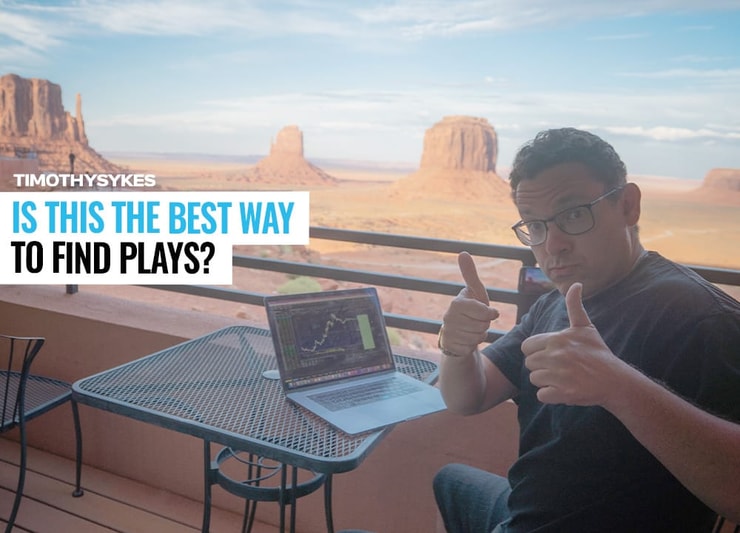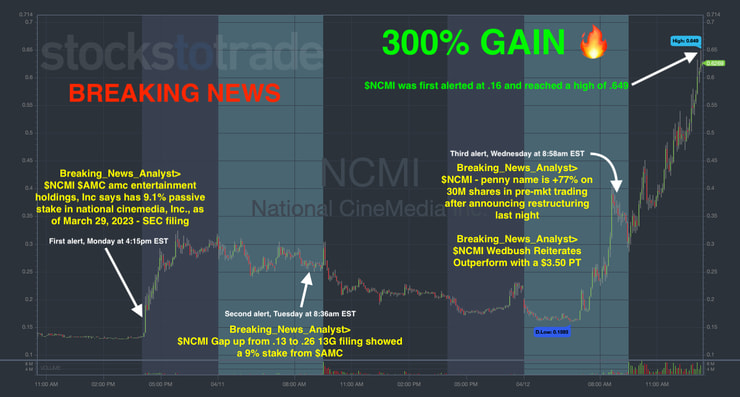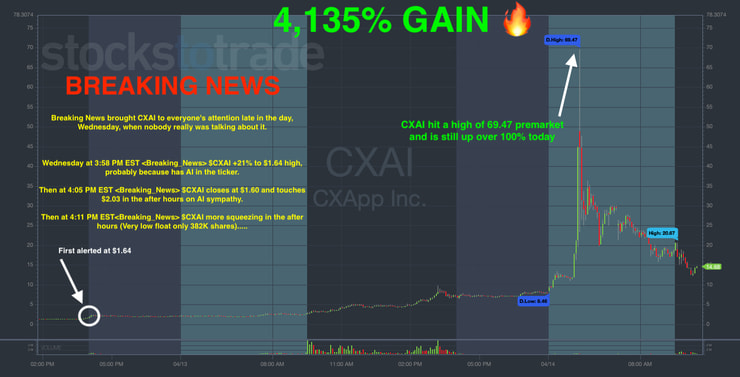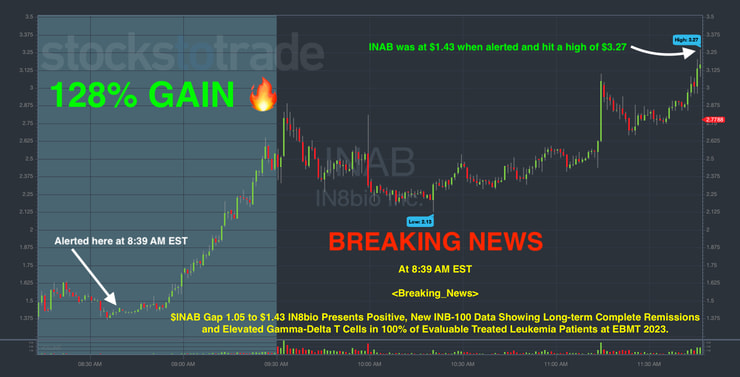Some of the best trading decisions made right now are from traders not bothering to turn on their trading platforms.
Someone asked what my schedule was like, this is my schedule from April 4 to May 4…mind you this is ALL 1 month. The lesson: learn from the mistakes of others are this schedule is completely insane/stupid & I'm only 3/4 through it about to fly to Turkey tomorrow with no bags! pic.twitter.com/uaYe2qoALU
— Timothy Sykes (@timothysykes) April 26, 2023
I’ve said it once…I’ll say it a million more times…
There’s a time to earn and a time to learn.
It’s not the time to be overtrading…but over studying.
We’re just in one of those slow-action markets.
Sure, there are one or two plays popping off each day…but it’s nothing compared to what we were seeing 2-3 years ago.
You should be spending the majority of your time studying and developing your trading skills.
In terms of screen time and actual trading…there’s one thing that’s working really well to find plays.
In fact, it’s something I’m looking at daily to find ideas. And if you’re not using this, then you’re potentially missing out on the biggest opportunities.
A Quick Way To Find Trade Ideas

You want to use this slow market as a time to study and develop your trading skills.
You can probably get away with trading for less than two hours a day in this market. Especially if you limit your trading to the first hour of the day and the last.
And since there’s not a lot going on…
You really just need to scroll through a list of the largest gainers each day.
I know…it doesn’t sound groundbreaking…but that’s the market we’re in.
But with so many traders focused on these plays…it can get crowded…and a lot more difficult to trade.
That’s why I’m typically focused on panic dip buys.
In other words, I’m putting these high-flying stocks on my watchlist, waiting for them to sell off hard…and then try to buy them for a quick flip.
It’s one of the ways I like to trade Supernovas.
The other thing I’m doing is trying to find out why these stocks are spiking so hard…
- What’s the catalyst?
- Is this a short squeeze?
- Is this a pump?
- Are there sympathy plays I can trade?
Answering all these questions helps me with formulating a trading plan and coming up with new ideas.
Of course, this is a reactive way to trade…
Let’s talk about a proactive way.
What If You Can’t Trade The First Or Last Hour?

The first and last hour tend to be the most active times to trade.
But what if you can’t trade during those time periods?
I’m not going to lie, it’s a disadvantage. However, there is still a chance you can find opportunities.
If I was stuck at my screen trading at a random time I would be focused on the StocksToTrade Breaking News Chat.
It’s the best real-time trading news I’ve ever used.
Not only does it spit out news as it’s breaking the major newswires, but it also finds all the breaking news on social media, and rumors from discord and chat rooms.
And some of their call outs recently have been on fire.
If you’re not using StocksToTrade Breaking News Chat then I’m not sure what’s wrong with you…seriously…you can’t beat it.
More Breaking News
- Ichor Holdings Upgrade Boosts Stock Amid Strong Earnings
- Oracle’s Expansion Plans and Market Response Fuel Stock Momentum
- Entegris Faces CFO Transition Amid Price Target Boosts from Analysts
- HUMA Stock Shows Volatility Amid Speculation and Economic Factors
You can test it out right here.
Final Note

I truly believe my next set of millionaire students will come from those studying hard right now in this crappy market.
If you can learn how to trade with patience, discipline, and with a proven strategy in this market…you’ll be amazed at what’s possible when things heat up again.
If you’d like to take the next step and learn about my program here’s the link.





Leave a reply